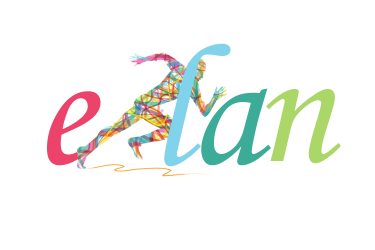Don’t worry, I’m neither possessed nor schizophrenic and I haven’t lost my mind! It’s not the field that I hate, just the actual term itself. Why? Because the term “pronunciation”, as it is understood now by ESL specialists and schools, does not do justice to the actual concept of pronunciation.
Ask an average ESL teacher about what they know about pronunciation and all you’re going to get is something like “it’s teaching those funny symbols right?” or “Oh yeah I teach pronunciation every day in my classroom, I write a few words that the students find difficult and we repeat them” or “I do minimal pairs sometimes, I find them very helpful”. Those comments simply show that the teacher is literally clueless about what pronunciation is and how to teach it. Most teachers deal with it as a form of repetition of random sounds. Even when they attempt to correct the students’ pronunciation, their idea of correction does not go beyond repeating the sound or describing to the student their mouth movement, which, ironically, is not that clear. Any correction without a solid understanding of the students’ mother tongue’s influence on his or her speech is pointless.
So I guess what I’m trying to say is, I hate the word “pronunciation” because it has been made synonymous with drills…just repetition and drills. The teachers think all they have to do to teach pronunciation is to keep on saying the same word or sentence until the students get it and when they see that that does not work, they too start to hate pronunciation or what they call “pronunciation”. When I became a teacher and set out to create my first 20-hour-a-week pronunciation course, all my fellow teachers laughed at me for thinking that I could teach pronunciation for 20 hours a week, they said they could hardly do it for 15 minutes a day! “What is there to teach for 20 hours?” most of them said. I always knew that pronunciation was a complex domain that requires that teachers have a great ear for languages too. A good pronunciation teacher would have to have high phonological and phonemic awareness to be able to help the learners find their mistakes and understand how they are making those mistakes. So a pronunciation teacher must have a talent. That is also part of the reason that most ESL teachers dislike pronunciation or are simply ignorant about it.
I said before that I hate the word “pronunciation” because it doesn’t do justice to real pronunciation teaching and its benefits. Pronunciation is basically teaching the language through sounds. That does not mean that if you teach pronunciation, you won’t be teaching vocabulary or grammar, of course you will, you ought to, it just means that you’ll be teaching it through sounds, that is, by using sounds (not letters) as the main mode of teaching. What does that mean? it means I can teach someone about the present perfect or conditional 1, 2, and 3 while focusing on the sounds of the present perfect structure or pattern and their effect on the listener. I can even definitely explain the rule but instead of doing that in writing, I do it orally and while focusing on the sound structure of the grammatical pattern, got it?
Students trained in pronunciation will be able to develop their vocabulary and improve their grammar accuracy twice as fast (if not faster) than those studying English the “normal” way. What that means that the former students will speak more fluently and understand native speakers of English much more effortlessly.
Yes, I hate “pronunciation” ladies and gentleman. I wish we could have it replaced with another term. I was going to suggest “soundology” or “soundistics” but they’re both taken believe it or not! I’ll keep on racking my brain until I find something better but…until then, I’ll keep hating “pronunciation”.
